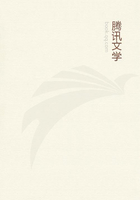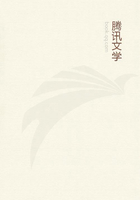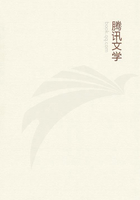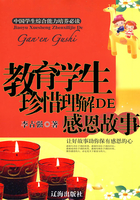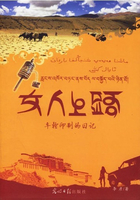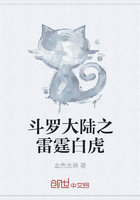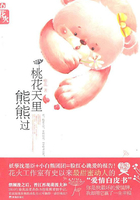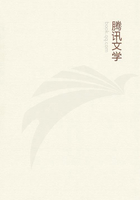Now it may be that this reading of the Constitution is a possible one, though indeed it is hard to see how it can be made compatible with the fundamental doctrine of ministerial responsibility. William III presided over his Council, and he was a constitutional monarch; and it seems that Stockmar had in his mind a conception of the Crown which would have given it a place in the Constitution analogous to that which it filled at the time of William III. But it is clear that such a theory, which would invest the Crown with more power than it possessed even under George III, runs counter to the whole development of English public life since the Revolution; and the fact that it was held by Stockmar, and instilled by him into Albert, was of very serious importance.
For there was good reason to believe not only that these doctrines were held by Albert in theory, but that he was making a deliberate and sustained attempt to give them practical validity. The history of the struggle between the Crown and Palmerston provided startling evidence that this was the case. That struggle reached its culmination when, in Stockmar's memorandum of 1850, the Queen asserted her "constitutional right" to dismiss the Foreign Secretary if he altered a despatch which had received her sanction. The memorandum was, in fact, a plain declaration that the Crown intended to act independently of the Prime Minister. Lord John Russell, anxious at all costs to strengthen himself against Palmerston, accepted the memorandum, and thereby implicitly allowed the claim of the Crown. More than that; after the dismissal of Palmerston, among the grounds on which Lord John justified that dismissal in the House of Commons he gave a prominent place to the memorandum of 1850. It became apparent that the displeasure of the Sovereign might be a reason for the removal of a powerful and popular Minister. It seemed indeed as if, under the guidance of Stockmar and Albert, the "Constitutional Monarchy" might in very truth be rising "to a height of power, stability, and symmetry, which had never been attained."
But this new development in the position of the Crown, grave as it was in itself, was rendered peculiarly disquieting by the unusual circumstances which surrounded it. For the functions of the Crown were now, in effect, being exercised by a person unknown to the Constitution, who wielded over the Sovereign an undefined and unbounded influence. The fact that this person was the Sovereign's husband, while it explained his influence and even made it inevitable, by no means diminished its strange and momentous import. An ambiguous, prepotent figure had come to disturb the ancient, subtle, and jealously guarded balance of the English Constitution. Such had been the unexpected outcome of the tentative and fainthearted opening of Albert's political life. He himself made no attempt to minimise either the multiplicity or the significance of the functions he performed. He considered that it was his duty, he told the Duke of Wellington in 1850, to "sink his OWN INDIVIDUAL existence in that of his wife--assume no separate responsibility before the public, but make his position entirely a part of hers--fill up every gap which, as a woman, she would naturally leave in the exercise of her regal functions--continually and anxiously watch every part of the public business, in order to be able to advise and assist her at any moment in any of the multifarious and difficult questions or duties brought before her, sometimes international, sometimes political, or social, or personal. As the natural head of her family, superintendent of her household, manager of her private affairs, sole CONFIDENTIAL adviser in politics, and only assistant in her communications with the officers of the Government, he is, besides, the husband of the Queen, the tutor of the royal children, the private secretary of the Sovereign, and her permanent minister." Stockmar's pupil had assuredly gone far and learnt well. Stockmar's pupil!--precisely; the public, painfully aware of Albert's predominance, had grown, too, uneasily conscious that Victoria's master had a master of his own. Deep in the darkness the Baron loomed. Another foreigner! Decidedly, there were elements in the situation which went far to justify the popular alarm. A foreign Baron controlled a foreign Prince, and the foreign Prince controlled the Crown of England. And the Crown itself was creeping forward ominously; and when, from under its shadow, the Baron and the Prince had frowned, a great Minister, beloved of the people, had fallen. Where was all this to end?
Within a few weeks Palmerston withdrew his resignation, and the public frenzy subsided as quickly as it had arisen. When Parliament met, the leaders of both the parties in both the Houses made speeches in favour of the Prince, asserting his unimpeachable loyalty to the country and vindicating his right to advise the Sovereign in all matters of State. Victoria was delighted. "The position of my beloved lord and master," she told the Baron, "has been defined for once amid all and his merits have been acknowledged on all sides most duly. There was an immense concourse of people assembled when we went to the House of Lords, and the people were very friendly." Immediately afterwards, the country finally plunged into the Crimean War. In the struggle that followed, Albert's patriotism was put beyond a doubt, and the animosities of the past were forgotten. But the war had another consequence, less gratifying to the royal couple: it crowned the ambition of Lord Palmerston. In 1855, the man who five years before had been pronounced by Lord John Russell to be "too old to do much in the future," became Prime Minister of England, and, with one short interval, remained in that position for ten years.

